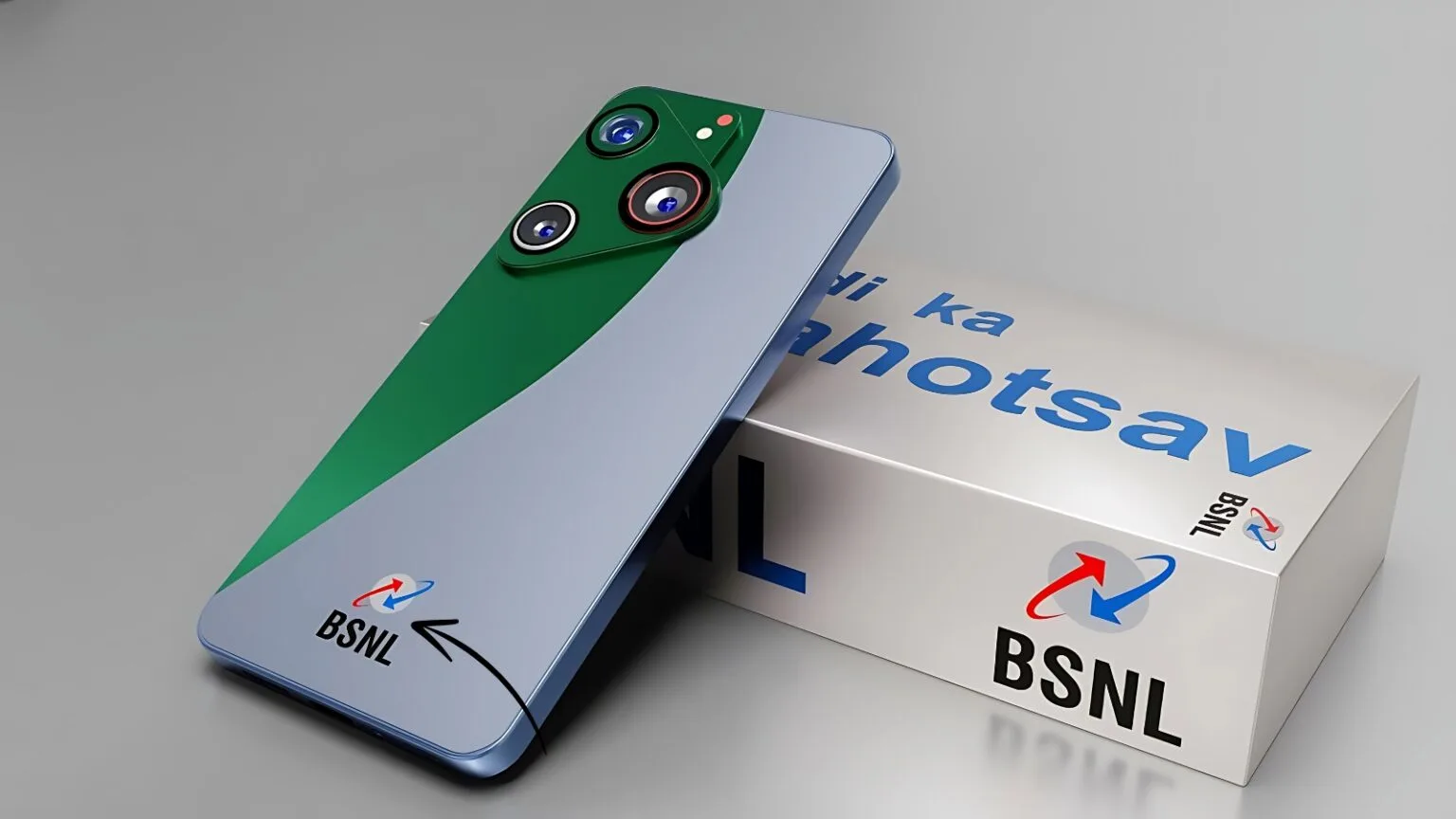BSNL 5G Smartphone: Bharat Sanchar Nigam Limited, India’s government-owned telecommunications company, is exploring an exciting new venture that could reshape the country’s smartphone landscape. The company, which has traditionally focused on providing network services and infrastructure, is now considering the development of its own 5G smartphone. This move represents a significant shift in strategy and could offer unique advantages to Indian consumers who have long relied on BSNL’s extensive network coverage across the country.
The idea of a BSNL-branded smartphone aligns perfectly with India’s broader goals of achieving technological independence and supporting domestic manufacturing. As the country continues to emphasize self-reliance in technology, BSNL’s potential entry into smartphone manufacturing could serve as a powerful example of how government-backed enterprises can contribute to this national objective while serving the specific needs of Indian consumers.
Understanding BSNL’s Unique Market Position
BSNL possesses several advantages that could make its smartphone venture successful. The company has built an extensive network infrastructure that reaches deep into rural and remote areas of India, places where private telecommunications companies often struggle to provide reliable service. This widespread coverage gives BSNL valuable insights into what Indian consumers actually need from their mobile devices, especially in areas where connectivity challenges are common.
The state-owned telecom operator has been steadily working to expand its 4G network and is preparing for 5G deployment across the country. This network expansion creates natural synergies with smartphone manufacturing, as BSNL could develop devices specifically optimized for its network characteristics. Such optimization could result in better performance, improved battery life, and enhanced user experience compared to generic smartphones that aren’t specifically designed for BSNL’s infrastructure.
Addressing Manufacturing Challenges and Opportunities
Entering the smartphone manufacturing sector would require BSNL to develop entirely new capabilities in areas such as hardware design, supply chain management, and consumer electronics marketing. The company would need to establish partnerships with component suppliers and manufacturing facilities, which represents a significant departure from its traditional telecommunications infrastructure focus.
However, BSNL’s government backing and established brand recognition among Indian consumers could provide substantial advantages in building trust and credibility for smartphone products. The company’s existing customer service infrastructure and retail presence in smaller cities and rural areas could facilitate smartphone distribution and provide after-sales support that many private manufacturers struggle to offer in these markets.
Features Tailored for Indian Consumers
A BSNL 5G smartphone would likely emphasize affordability, reliability, and optimization for Indian network conditions. The device could include features specifically designed for BSNL’s network infrastructure, potentially offering superior performance and battery efficiency when used with BSNL services. With a reported 6800 mAH battery capacity, the smartphone could provide extended usage time, which is particularly valuable for users in areas with limited charging infrastructure.
The smartphone might incorporate government-approved security features, comprehensive support for Indian languages, and integration with various government digital services. Pre-installed applications could include BSNL-specific services, government applications, and tools that serve the diverse needs of BSNL’s customer base, from urban professionals to rural farmers.
Market Strategy and Competitive Positioning
BSNL’s government backing and public service orientation could enable competitive pricing strategies that make 5G smartphones accessible to a broader range of Indian consumers. The company might prioritize market penetration and social impact over profit maximization, potentially offering devices at prices that private manufacturers couldn’t match while maintaining acceptable quality standards.
The pricing strategy could include bundled offers that combine smartphone purchases with BSNL service plans, creating value propositions that leverage the company’s telecommunications services alongside hardware offerings. This integrated approach could be particularly attractive to price-sensitive Indian consumers who value comprehensive solutions and long-term reliability over cutting-edge features.
Future Implications and Market Impact
The success of a BSNL smartphone would depend on the company’s ability to execute effectively in hardware manufacturing while maintaining its core telecommunications service quality. The concept demonstrates the potential for government-backed enterprises to play expanded roles in India’s technology ecosystem beyond traditional infrastructure provision.
This initiative could contribute significantly to India’s digital self-reliance goals while serving underserved market segments that private manufacturers often overlook. The combination of network optimization, government support, and focus on affordability could create a unique market position that benefits millions of Indian consumers.
Disclaimer: This article is written for informational purposes only and is based on publicly available information and industry analysis. BSNL’s smartphone manufacturing plans may be subject to change, and actual product specifications, pricing, and availability may differ from what is discussed in this article. Readers should verify current information through official BSNL channels and announcements before making any purchasing decisions. The author is not responsible for any decisions made based on this information.


